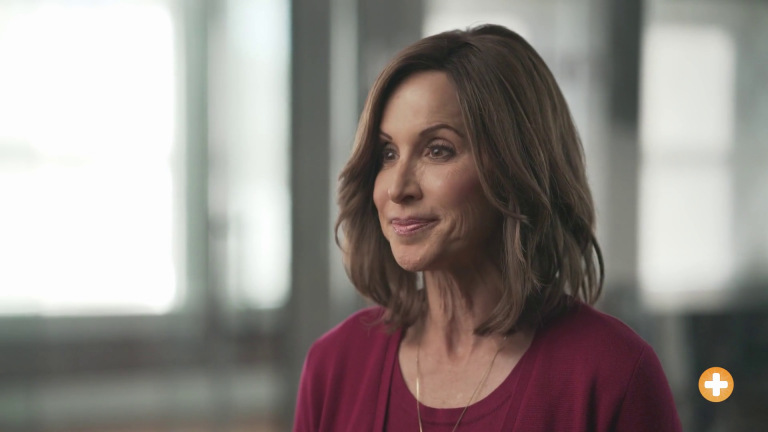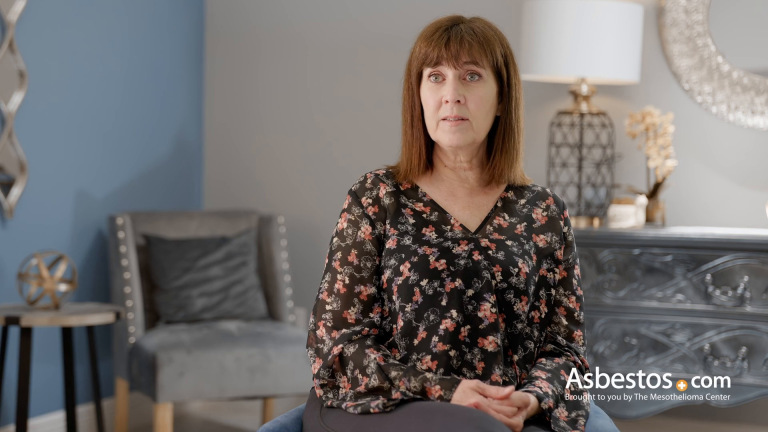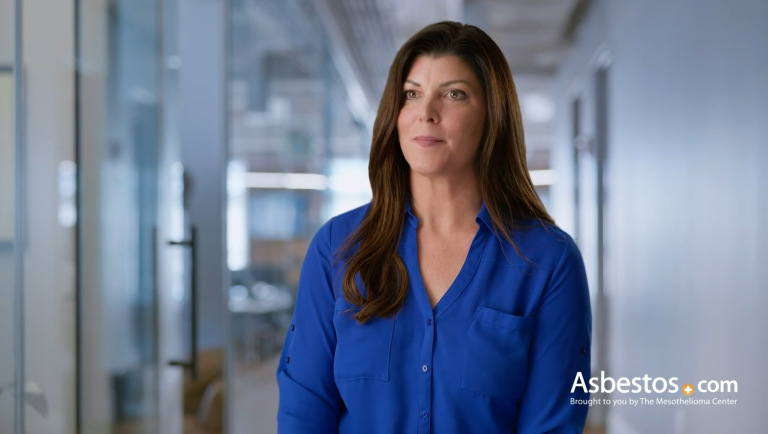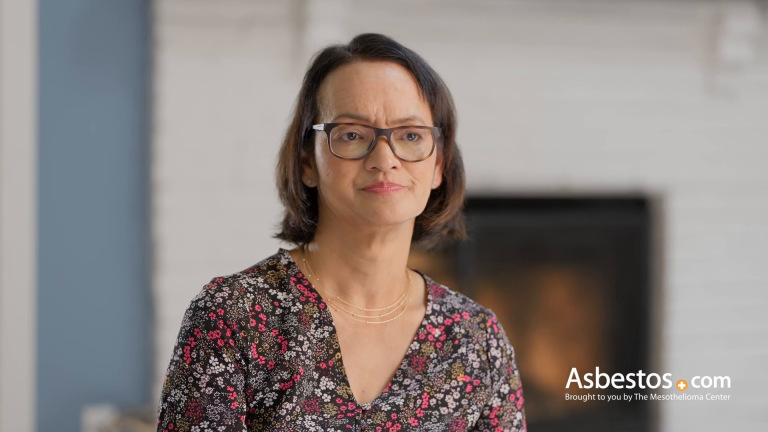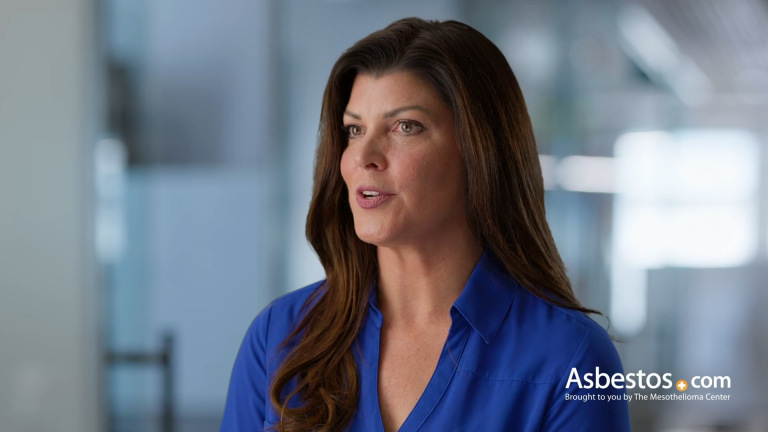Our Patient Advocates
Our Patient Advocates help mesothelioma patients and their loved ones navigate the health care system to find the best doctors, treatment centers, clinical trials, financial aid and support groups at no cost to the patient.
How Our Patient Advocates Can Help
Our team of Patient Advocates at The Mesothelioma Center, the nation’s most trusted mesothelioma resource, provides free exclusive services, unique forms of support, medical resources and assistance navigating the health care system. Testimonials from people we’ve helped show our Patient Advocates are compassionate listeners who truly care about patients and their families.
Related Videos:

Benefits of working with our Patient Advocates:
- Help finding top mesothelioma specialists and cancer centers near you
- Access to caregiver resources and patient and family support groups
- Help navigating insurance and Medicare processes
- Assistance with palliative care and end-of-life resources
- Help getting compensation for lost wages, treatment costs and more
- Assistance filing VA benefits claims
-
17 Yearsserving victims of asbestos exposure
-
50% of Patientsdiagnosed in the U.S. each year turn to us for help
-
1300+ VSOstrained to help with asbestos-related VA claims
-
500 Relationshipswith the nation’s best mesothelioma specialists
The Mesothelioma Center Google Reviews
Joe DAgostino
Danielle at The Mesothelioma Center has been a tremendous help to our family since my Dad’s diagnosis. She is very knowledgeable and responsive and always ready talk to me. She has helped with legal, medical, nutritional, patient care, and other advice. I wholeheartedly recommend Daniele and The Mesothelioma Center when dealing with a mesothelioma diagnosis and care.
Sharon Deroche
Thanks to Dr. Smart and the Mesothelioma Center, I went from knowing nothing about this disease to knowing how it is contracted, what it does to the body, treatments available, etc in just three short weeks. I went from totally overwhelmed to having an understanding of what we were facing and were to go for treatment. I was not very nice the first time Dr. Smart called. I was in a hospital room watching my husband go through 2 surgeries in 4 days. A day later, a shipment of materials arrived from the Center. It was exactly what I needed to help us deal with this terrible disease. We still have a long way to go but I now know I have the support of the center to direct me to the resources we will need. I watched a webinar put on by The Mesothelioma Center. Three weeks ago, doctors where asking us what questions we had. We didn’t know enough to even come up with a question. Now, I am able to ask the questions that we need to have answered. We were directed to doctors who are experts in this field. These are doctors that we are very comfortable with handling my husband’s care. They are not the team of doctors we started with but the ones that are the best fit for us. We are so grateful to Dr. Smart and the Center. We have many things related to this illness that we have to take care of, such as nutrition and the financial aspects. I know I can turn to the Mesothelioma Center for guidance. Three weeks ago, I didn’t know this organization existed. Today, I don’t know how we would have moved forward without this support.
sarah boss
Danielle has been so helpful in providing information and just answering any questions I have. Kind, caring and informative during the time when we needed it the most, when everything is so uncertain.
Vicky H
Exceptional. Engaged in a 30min+ phone call full of me asking questions without giving the name/location of my aunt recently diagnosed. Extremely knowledgeable. Patient. Informative. Transparent with how funded. Provided specific resources to use when researching. You don’t see customer service like this anymore, or maybe ever. Highly recommend.
martha moreira
My son Carlos was diagnosed with this terrible and unknown disease a few months ago. Thank God we found this Mesothelioma Center along the way and Vanessa Blanco who has provided us with information on hospitals and doctors who have been of great help. I am very grateful to them.
Meet the Team

Our Patient Advocate team features registered nurses, a medical doctor, oncology patient navigator, military veteran, hospice expert and health service administrators.
They help patients find the best mesothelioma doctors at top-notch cancer centers, assist veterans applying for VA benefits and connect families to supportive services. Our Patient Advocates are available seven days a week to offer assistance and support.
Patient Advocates
-
 Karen Selby, RNRegistered Nurse and Patient AdvocateKaren Selby is a registered nurse with a background in oncology and general, vascular and thoracic surgery. Her surgical and oncologic experience help her guide and educate patients on treatment options, clinical trials and how to access different types of support.
Karen Selby, RNRegistered Nurse and Patient AdvocateKaren Selby is a registered nurse with a background in oncology and general, vascular and thoracic surgery. Her surgical and oncologic experience help her guide and educate patients on treatment options, clinical trials and how to access different types of support. -
 Snehal Smart, M.D.Medical Doctor and Patient AdvocateSnehal Smart is a medical doctor with a background in teaching and mentoring that she uses to educate patients on the diagnosis and treatment of mesothelioma. She helps patients understand the types of testing they must undergo and what treatments to discuss with their doctor.
Snehal Smart, M.D.Medical Doctor and Patient AdvocateSnehal Smart is a medical doctor with a background in teaching and mentoring that she uses to educate patients on the diagnosis and treatment of mesothelioma. She helps patients understand the types of testing they must undergo and what treatments to discuss with their doctor. -
 Vanessa BlancoPatient Advocate and Oncology Patient NavigatorVanessa Blanco is a certified Oncology Patient Navigator with a Master of Science degree in Health Service Administration. She uses her professional and personal experiences to help patients and families access health care, emotional support and financial aid.
Vanessa BlancoPatient Advocate and Oncology Patient NavigatorVanessa Blanco is a certified Oncology Patient Navigator with a Master of Science degree in Health Service Administration. She uses her professional and personal experiences to help patients and families access health care, emotional support and financial aid. -
 Amy PelegrinHospice Care DirectorHospice Care Director Amy Pelegrin educates patients and caregivers about hospice and palliative care programs. She helps families understand all that hospice care can offer, guides patients through end-of-life resources and helps them access hospice care.
Amy PelegrinHospice Care DirectorHospice Care Director Amy Pelegrin educates patients and caregivers about hospice and palliative care programs. She helps families understand all that hospice care can offer, guides patients through end-of-life resources and helps them access hospice care. -
 Joe Lahav, EsquireLawyer and On-Site Legal AdvisorJoe Lahav earned a Juris Doctorate from the University of Florida College of Law and is licensed to practice in Florida and Washington, D.C. He has been a legal advisor for The Mesothelioma Center since 2008 and managed the Patient Advocate team for seven years.
Joe Lahav, EsquireLawyer and On-Site Legal AdvisorJoe Lahav earned a Juris Doctorate from the University of Florida College of Law and is licensed to practice in Florida and Washington, D.C. He has been a legal advisor for The Mesothelioma Center since 2008 and managed the Patient Advocate team for seven years.
Veteran Support
-
 Aaron MunzDirector of Veterans DepartmentAaron Munz is a former U.S. Army captain who served nine years in leadership, combat and strategic training. He assists veterans with the complicated paperwork and evidence required to file VA disability claims and helps them successfully file appeals.
Aaron MunzDirector of Veterans DepartmentAaron Munz is a former U.S. Army captain who served nine years in leadership, combat and strategic training. He assists veterans with the complicated paperwork and evidence required to file VA disability claims and helps them successfully file appeals. -
 Danielle DiPietroVA-Accredited Claims AgentDanielle DiPietro is a Board Certified Patient Advocate and VA-accredited claims agent who ensures veterans understand and access VA benefits. She helps veterans fill out VA paperwork, gather information on prior asbestos exposure and submit VA claims correctly to facilitate approval.
Danielle DiPietroVA-Accredited Claims AgentDanielle DiPietro is a Board Certified Patient Advocate and VA-accredited claims agent who ensures veterans understand and access VA benefits. She helps veterans fill out VA paperwork, gather information on prior asbestos exposure and submit VA claims correctly to facilitate approval.

Aaron Munz, Veterans Department Director
The Veterans Outreach team has built a network of cancer specialists and VA treatment centers that provide the best treatments for mesothelioma. Aaron Munz and the rest of the VO team work directly with veterans across the country, helping patients and families navigate VA disability claims for military asbestos exposure.
Medical Outreach
-
 Missy MillerMedical Outreach DirectorMedical Outreach Director Missy Miller helps establish relationships with mesothelioma specialists throughout the country as part of our Doctor Match Program. Her background in psychology prepared her to serve the mental and emotional needs of families facing mesothelioma.
Missy MillerMedical Outreach DirectorMedical Outreach Director Missy Miller helps establish relationships with mesothelioma specialists throughout the country as part of our Doctor Match Program. Her background in psychology prepared her to serve the mental and emotional needs of families facing mesothelioma. -
 Jose OrtizMedical Outreach LiaisonJose Ortiz is a Medical Outreach Liaison who has traveled throughout the country to create relationships with the best mesothelioma doctors and treatment centers. His prior experience in the pharmaceutical industry prepared him to build relationships with mesothelioma experts.
Jose OrtizMedical Outreach LiaisonJose Ortiz is a Medical Outreach Liaison who has traveled throughout the country to create relationships with the best mesothelioma doctors and treatment centers. His prior experience in the pharmaceutical industry prepared him to build relationships with mesothelioma experts.
Missy Miller, Medical Outreach Director
The Mesothelioma Center has built long-lasting relationships with cancer specialists and nationally recognized cancer centers across the U.S., thanks to Missy Miller and the Medical Outreach team. In addition to the Doctor Match program, which connects patients to local specialists and clinical trials, Medical Outreach provides resources for travel, financial assistance and more.
Get in Touch with Our Team
Do you have a question for one of our Patient Advocates? The form below will connect you with a Patient Advocate who will be in touch to answer your questions.

